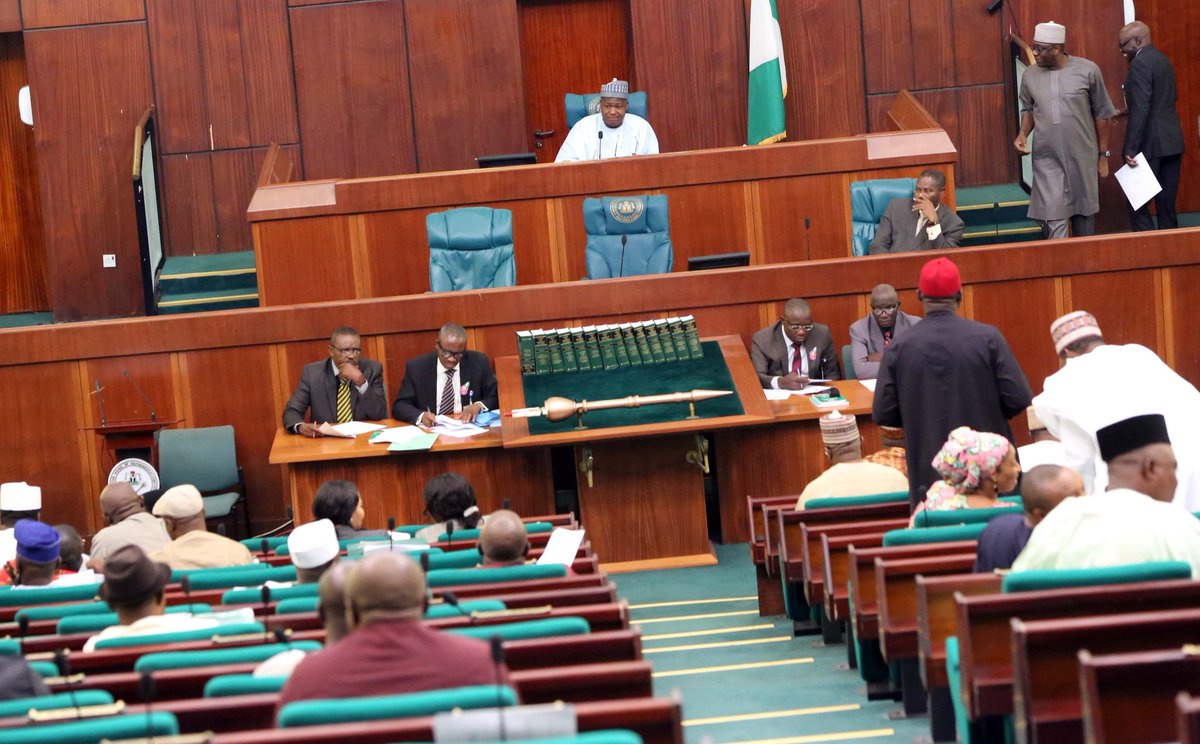- Rep Seeks 20-year Jail Term for Financial Crimes
The House of Representatives wants persons convicted of economic and financial crimes to be jailed for 20 years.
This is part of the details of the new amendments to the Economic and Financial Crimes Commission Act, 2004, which was obtained on Sunday.
The Act currently prescribes a penalty of “not less than two years” for economic and financial crimes.
Lawmakers consider this to be “lenient” for the serious crime of stealing public money or other forms of financial crimes.
Four consolidated bills before the House are seeking to further empower the EFCC to fight crime, insulate the anti-graft agency from interference by the Presidency and enhance its financial autonomy.
One of the bills, which was sponsored by a member from Cross River State, Mr. Bassey Ewa, proposes to raise the two-year term for economic and financial crimes offenders to 20 years.
In the new bill, Section 18 of the Principal Act is amended to prescribe tougher punishments for economic and financial crimes.
The new subsection (C) reads: “All convicted persons shall serve an imprisonment of a term not less than 20 years and have their ill-gotten property, accounts or investment confiscated by the government.”
The new proposal also states that plea bargaining or returning the full amount stolen does not exclude the convict from penalty.
Subsection (d) adds, “Where the accused person, upon investigation, accepts to refund the total amount standing in his/her name and willing to plea bargain, he or she shall be convicted for not less than two years.”
Similarly, a company found guilty of economic or financial crimes, will be barred from doing business in Nigeria for 50 years.
This is captured under subsection (e), which states that, “Any company found guilty of offences under this Act, both its assets and finances shall be frozen and the company blacklisted from doing business in Nigeria for 50 years.”
Another key amendment seeks to remove the power of appointing the Chairman of the EFCC from the President and to be vested directly in the hands of Nigerians.
Under the extant provisions, the President appoints the chairman and forwards the name to the Senate for approval.
But in the new amendment, members of the public, through a petition to the National Assembly, are empowered to make the appointments.
For example, Section 3 of the Principal Act is amended to insert new subsections (4) and (5).
The proposed subsection 4 reads: “Petitions against the Chairman or any of the members of the EFCC emanating from the public or the private sector shall be submitted to the National Assembly.
“If upon investigation and found culpable, a simple majority vote of members of the National Assembly is required in considering the fate of the chairman or any of the affected member.”
Subsection (5) provides that the resolution, when passed, will be forwarded to the President, who shall within 30 days, either accept the resolution or reject it.
The section empowers the National Assembly to override the President’s veto with a “two-thirds majority vote” of senators and members of the House of Representatives.
To make the EFCC financially autonomous, the House proposes in Section 35 of the Act that the commission should retain “0.1 per cent” of recovered looted funds.
It is also to retain “0.1 per cent” of its Internally-Generated Revenue.
Another “0.1 per cent” of contracts awarded by the Federal Government is to the credited to the account of the commission.
Also we obtained the details of amendments proposed to the Act by the Chairman, House Committee on Financial Crimes, Mr. Kayode Oladele.
Oladele’s bill, “A Bill for an Act to Amend the EFCC Act, 2004 to Enhance Effectiveness of the Act, and for other Related Matters,” seeks to grant full autonomy to the Nigerian Financial Intelligence Unit.
When contacted, Ewa explained why he sought harsher punishment for economic thieves.
He said, “This provision of two years imprisonment, is mild and it should be raised to not less than 20 years. This will deter public servants from stealing money.
“If your are 40 years old and you know that you will be 60 years by the time you are out of jail, you will have some fear in you and think about your children.
“But to say two years is to encourage stealing the more because people say after all, it is only two years.”
The four bills passed second reading last week at a session presided over by the Speaker, Mr. Yakubu Dogara.


 Billionaire Watch3 weeks ago
Billionaire Watch3 weeks ago
 Startups4 weeks ago
Startups4 weeks ago
 News4 weeks ago
News4 weeks ago
 News4 weeks ago
News4 weeks ago
 Bitcoin4 weeks ago
Bitcoin4 weeks ago
 Naira4 weeks ago
Naira4 weeks ago
 Forex3 weeks ago
Forex3 weeks ago
 Treasury Bills4 weeks ago
Treasury Bills4 weeks ago
























